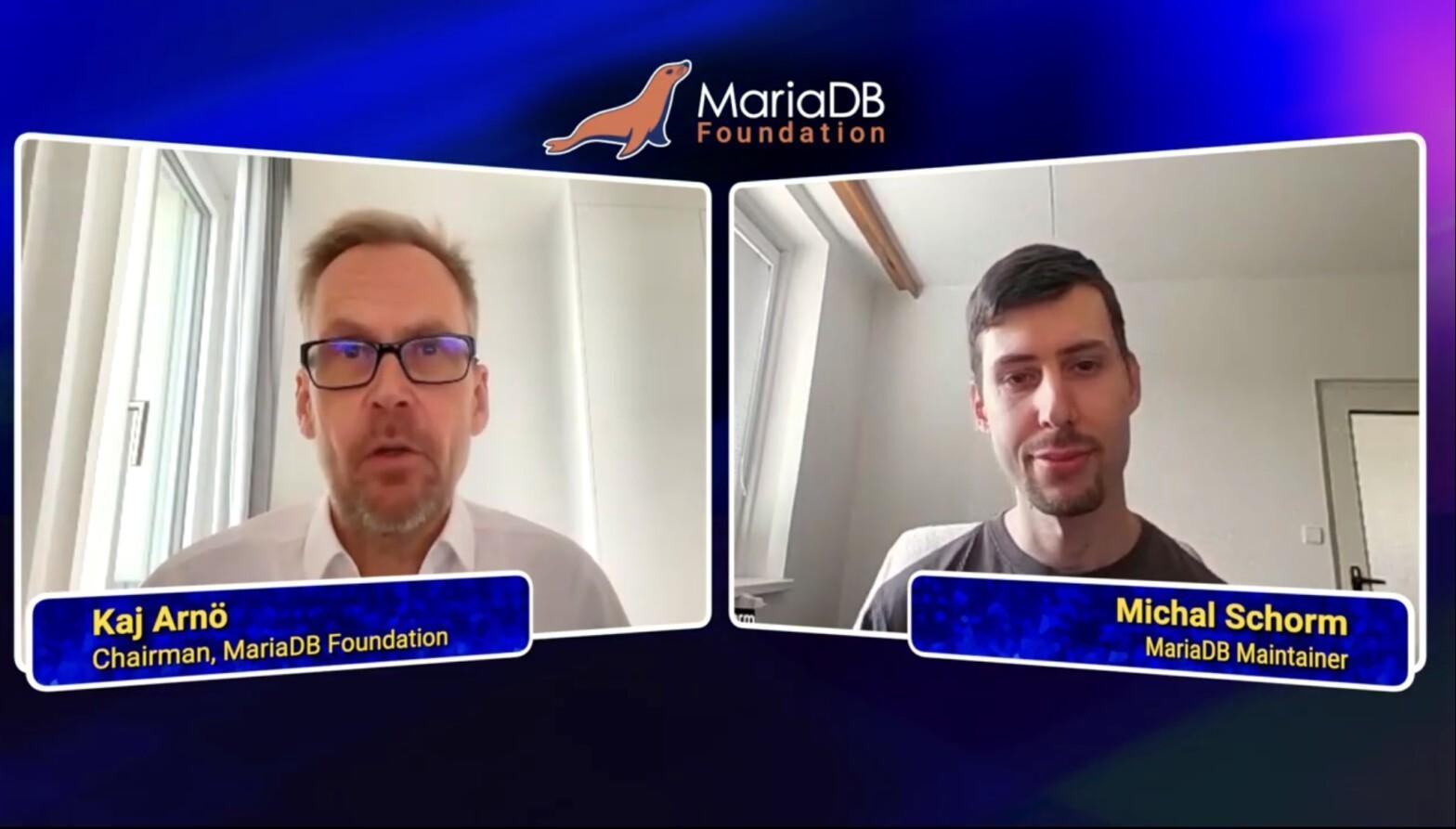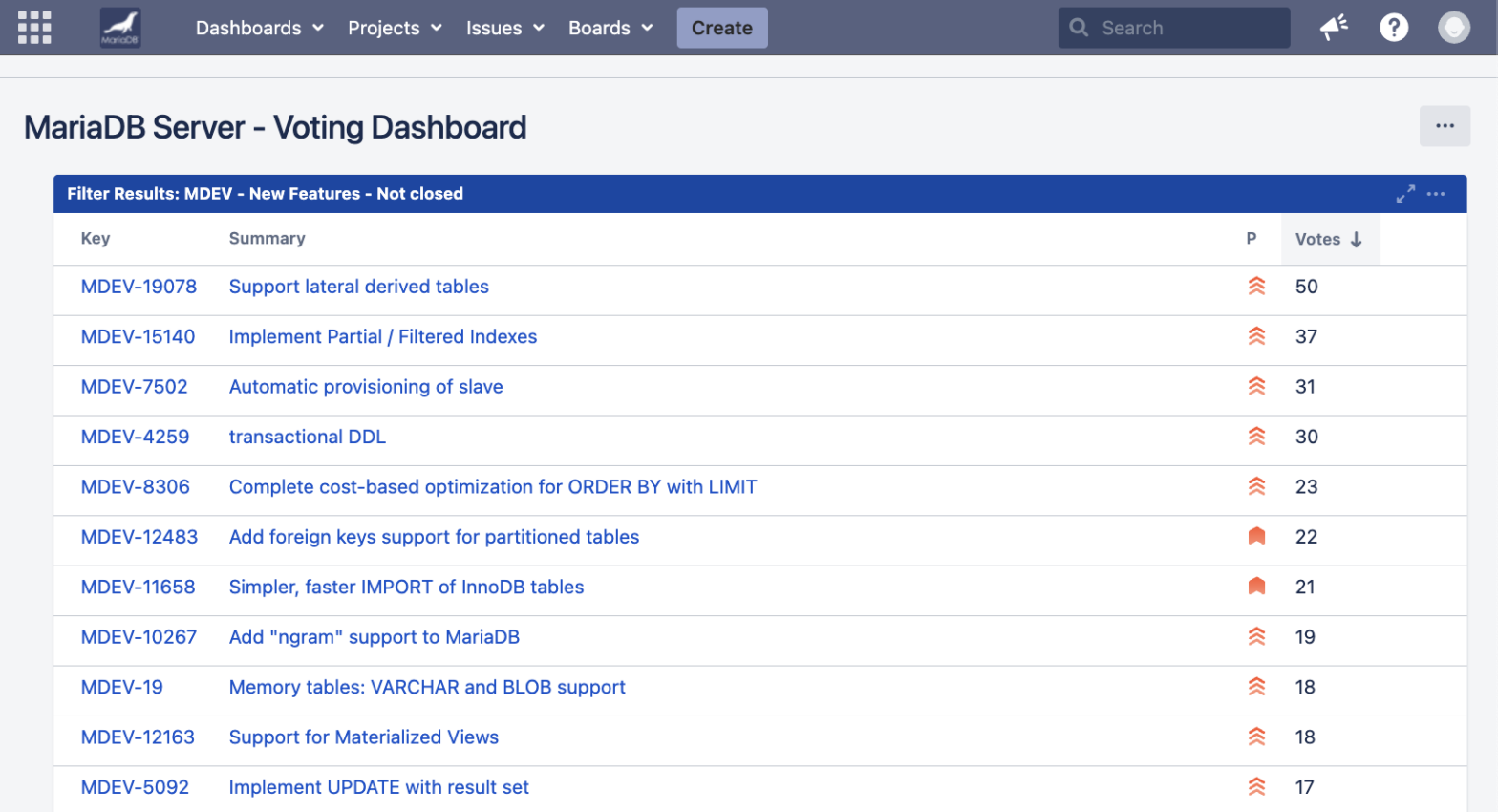Category Archives: Community
Exactly one month ago, I found myself stepping into the role of CEO at MariaDB Foundation. It was a bit like being handed the keys to a beloved old ship and being told, “Don’t worry, it mostly steers itself… unless there’s a storm. Or a kraken. Or a GitHub issue.”
As someone whose surname gives away a bit of context, it’s both an honor and a deeply personal journey to be entrusted with stewarding this next chapter. I used to say that I have done my bit for the project by adding “Maria” to “MariaDB”, but what do you know it turns out – there is a lot more out there for me to do!!!
…
Continue reading “The Accidental Queen of the Database Dominion – Month one”
The ideation phase of the MariaDB AI RAG Hackathon is nearing its deadline on Monday (by end of March).
We have several cool submissions so far. One is about combining the Knowledge Graph and LLMs, using MariaDB Vector Nearest Neighbour Search. Another one is about an “advanced context diff”, identifying the differences between two text corpuses based not on their literal wording, but on their content.
All of the current submissions are in the Innovation track. We would particularly like submissions in the Integration track – to add MariaDB to frameworks such as these, or other apps.
…
In a recent conversation, I had the pleasure of speaking with Michal Schorm, the maintainer of MariaDB packages for Red Hat and Fedora – and newly elected Observer on the MariaDB Foundation Board. Our discussion covered his role, the current state of MariaDB in these distributions, and ideas for future improvements.
The Role of a MariaDB Package Maintainer
Michal is responsible for ensuring that the MariaDB source code is compiled and made available as installable packages for Fedora, CentOS Stream, and Red Hat Enterprise Linux (RHEL).
…
Continue reading “A Conversation with Michal Schorm: MariaDB in Red Hat and Fedora”
MariaDB has had a voting feature in its issue tracker Jira since the dawn of time, but it hasn’t got much active attention. Despite that, there are now many Jira community items that have collected a fair amount of votes over the years.
Many items are now in limbo—not on the MariaDB road map, but not rejected either. We would like to better understand how to act on these.
More votes, and preferably more detailed comments on syntax and desired functionality or insights on use cases, would help the MariaDB Foundation and Corporation a lot in deciding what to do and how to prioritize resources.
…
Here comes the Q4 2024 contributions report. The raw data which contains also statistics until today can be found on GitHub, here.
Server contributions
Just like last quarter, I’m going to start with a breakdown of all the organisations who have contributed to MariaDB Server during 2024.
| MariaDB Plc. | 31 | 1707 |
| MariaDB Foundation | 9 | 201 |
| Codership | 7 | 103 |
| Amazon | 12 | 51 |
| Independent | 19 | 48 |
| GSoC | 3 | 14 |
| Arch Linux | 1 | 6 |
| Alibaba | 1 | 4 |
| IONOS | 1 | 4 |
| Workato | 1 | 4 |
| Rakuten | 1 | 3 |
| OpenBSD | 1 | 2 |
| HardenedBSD | 1 | 2 |
| University of Sydney | 1 | 2 |
| Arm | 1 | 1 |
| ClearCode | 1 | 1 |
| FreeBSD | 1 | 1 |
| IBM | 1 | 1 |
| NetBSD | 1 | 1 |
| Chainguard | 1 | 1 |
| CloudLinux | 1 | 1 |
| TOTAL | 96 | 2158 |
MariaDB Server contributions for from 1st January 2024 – 31st December 2024
We can see some new names compared to the Q3 2024 report, with contributions from CloudLinux, NetBSD and Workato.
…
Continue reading “MariaDB Contribution Statistics, January 2025”
Here are the results of a recent poll on LinkedIn and mariadb.org about the popularity of a few of the major replication features (I aggregated the results from the two sites):
What is your favorite MariaDB replication feature?
- 36% Parallel replication
- 27% Multi-source replication
- 23% Global transaction ID (GTID)
- 14% Semi-synchronous replication
I want to share some reasons why the poll results match my own thoughts on the relative importance of these features:
1. Parallel replication
Parallel replication brings a much needed performance boost to replication.
…
As Chief Development Officer of the MariaDB Foundation, I’ve worked to ensure that our development efforts focus where they matter most. On this final day of 2024, I want to reflect on the significant technical achievements we’ve accomplished and the collaborative processes that made them possible.
Our work this year has been driven by the goal of building a stronger, more engaged MariaDB community. By sharing our progress and learnings, I hope to provide insights that may inspire and support other open-source projects.
Finally, I’ll outline the Foundation’s vision for 2025 and how we plan to bring it to life.
…
We’re no mind readers, so from time to time, we like to do polls. Polls are quantitative in nature, so coming up with the right question is not enough – we need to do a bit of mind reading in coming up with the alternatives.
Quick development of text based RAG apps
Our hypothesis was that RAG is the cool thing to do with vector based databases, and specifically text based RAG. The conference talks we’ve given on MariaDB Vector (such as at the 24th SFSCON in Bozen, Südtirol, Italy on 8 Nov 2024) have stressed the value of easily being able to develop AI applications that answer user prompts based on knowledge in a specific text mass, not on the overall training data of an LLM.
…
Continue reading “What do you expect from vector storage in databases?”





